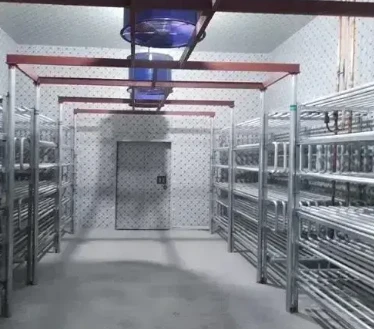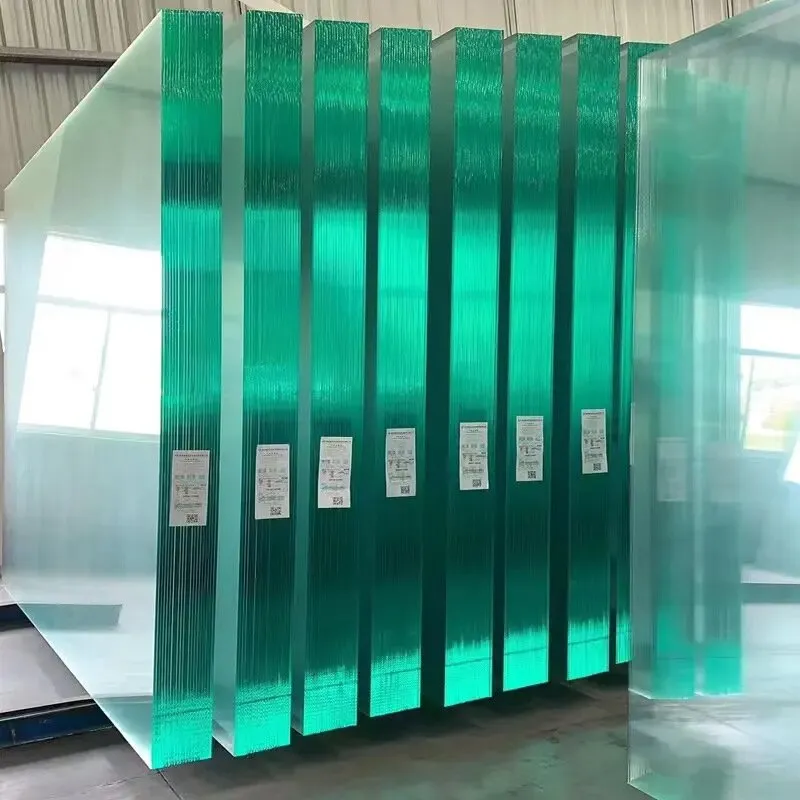Float glass, a staple in modern industrial production, represents a revolution in the way we manufacture glass products. An integral part of everyday life, float glass constitutes the basis of windows, mirrors, and countless other transparent structures around us. Its ubiquity has cemented its position in both widespread consumer goods and specialized, high-performance applications.

Float glass production involves a meticulously controlled process that ensures uniform thickness and flawless surfaces, distinguishing it from other glass types. The process begins with raw materials like silica sand, soda ash, and limestone, which are melted in a furnace at approximately 1700 degrees Celsius. The molten glass is then poured onto a bath of molten tin in a highly-controlled atmosphere. This float method, pioneered in the 1950s by Sir Alastair Pilkington, results in a perfectly flat and clear sheet as the glass floats over the tin bath, cooling gradually to form a solid.
Industries that demand precision and reliability gravitate towards float glass due to its unique properties. Architects prefer it for its superior clarity and uninterrupted spans, allowing for stunning visual connectivity between indoor and outdoor environments. Additionally, its structural uniformity makes it an excellent substrate for complex coatings and laminations that enhance thermal insulation, reflection, and even self-cleaning attributes. Thus, float glass is not just transparent but adaptable, playing pivotal roles in energy-efficient building designs.

The versatility of float glass extends beyond architecture. It is a crucial component in the automotive industry, providing the seamless, aerodynamic shapes essential for modern vehicles. In electronic devices, it serves as a substrate for displays and solar panels, emphasizing its reliability and adaptability in high-tech applications. The continuous advancements in float glass technology, such as thinner and stronger compositions, cater to these evolving demands, reflecting the material's robust innovation track.
float glass meaning
Environmentally, float glass manufacturing has made significant strides in reducing its carbon footprint. Recycling plays a vital role in this process. Reclaimed glass, or cullet, is incorporated into the production cycle, reducing the need for raw materials and energy consumption. This sustainable practice not only conserves resources but also enhances the glass's purity by lowering emission-related impurities during melting. Many producers are also embracing renewable energy sources to power their operations, further mitigating environmental impact while maintaining high production standards.
The industry demands not only technical excellence but also trust and credibility. Leading float glass manufacturers uphold strict quality control measures, adhering to international standards and certifications that assure clients of the product's durability and performance. Moreover, their commitment to research and development ambitions foster innovative solutions tailored to specific industry requirements, showcasing their authoritative stance in the materials science domain.
The future of float glass looks toward smart technologies and novel applications. Incorporating intelligent systems within glass panels, embedding sensors and digital interfaces, transforms static surfaces into interactive platforms, heralding a new era of smart buildings and IoT (Internet of Things) integration. Experts predict that these advancements will create safer, more efficient living and working environments, making float glass a pivotal material in technological progress.
In conclusion, float glass embodies the synthesis of tradition and innovation, ecological mindfulness, and technological prowess. It stands as a testament to human ingenuity, continuously reshaping the landscapes of architecture, automotive, and electronics. Whether as a transparent barrier or a technological interface, float glass offers unparalleled expertise and reliability, underscoring its position as a cornerstone in both conventional and cutting-edge applications. As industries evolve, so too will the capabilities of float glass, reflecting a dynamic balance between enduring quality and futuristic vision.
 Afrikaans
Afrikaans  Albanian
Albanian  Amharic
Amharic  Arabic
Arabic  Armenian
Armenian  Azerbaijani
Azerbaijani  Basque
Basque  Belarusian
Belarusian  Bengali
Bengali  Bosnian
Bosnian  Bulgarian
Bulgarian  Catalan
Catalan  Cebuano
Cebuano  Corsican
Corsican  Croatian
Croatian  Czech
Czech  Danish
Danish  Dutch
Dutch  English
English  Esperanto
Esperanto  Estonian
Estonian  Finnish
Finnish  French
French  Frisian
Frisian  Galician
Galician  Georgian
Georgian  German
German  Greek
Greek  Gujarati
Gujarati  Haitian Creole
Haitian Creole  hausa
hausa  hawaiian
hawaiian  Hebrew
Hebrew  Hindi
Hindi  Miao
Miao  Hungarian
Hungarian  Icelandic
Icelandic  igbo
igbo  Indonesian
Indonesian  irish
irish  Italian
Italian  Japanese
Japanese  Javanese
Javanese  Kannada
Kannada  kazakh
kazakh  Khmer
Khmer  Rwandese
Rwandese  Korean
Korean  Kurdish
Kurdish  Kyrgyz
Kyrgyz  Lao
Lao  Latin
Latin  Latvian
Latvian  Lithuanian
Lithuanian  Luxembourgish
Luxembourgish  Macedonian
Macedonian  Malgashi
Malgashi  Malay
Malay  Malayalam
Malayalam  Maltese
Maltese  Maori
Maori  Marathi
Marathi  Mongolian
Mongolian  Myanmar
Myanmar  Nepali
Nepali  Norwegian
Norwegian  Norwegian
Norwegian  Occitan
Occitan  Pashto
Pashto  Persian
Persian  Polish
Polish  Portuguese
Portuguese  Punjabi
Punjabi  Romanian
Romanian  Russian
Russian  Samoan
Samoan  Scottish Gaelic
Scottish Gaelic  Serbian
Serbian  Sesotho
Sesotho  Shona
Shona  Sindhi
Sindhi  Sinhala
Sinhala  Slovak
Slovak  Slovenian
Slovenian  Somali
Somali  Spanish
Spanish  Sundanese
Sundanese  Swahili
Swahili  Swedish
Swedish  Tagalog
Tagalog  Tajik
Tajik  Tamil
Tamil  Tatar
Tatar  Telugu
Telugu  Thai
Thai  Turkish
Turkish  Turkmen
Turkmen  Ukrainian
Ukrainian  Urdu
Urdu  Uighur
Uighur  Uzbek
Uzbek  Vietnamese
Vietnamese  Welsh
Welsh  Bantu
Bantu  Yiddish
Yiddish  Yoruba
Yoruba  Zulu
Zulu 


